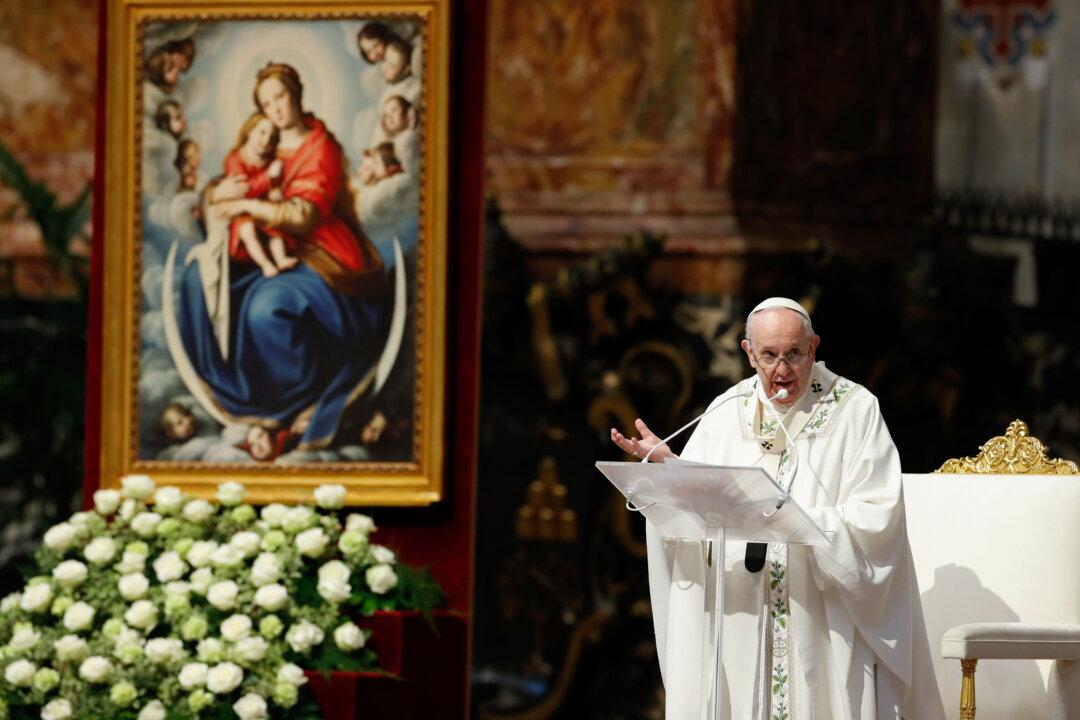VATICAN CITY—Pope Francis named a new bishop of Hong Kong on Monday, a long-delayed appointment that comes amid Sino-Vatican frictions and growing Western concern over human rights in the global financial hub.
Stephen Chow, 61, head of Hong Kong’s Jesuit order, will replace Cardinal John Tong, who has held the post in a caretaker capacity following the death of the previous bishop, Michael Yeung, in January 2019.
Senior clerics in Hong Kong familiar with the situation said the new bishop must ease tensions among a flock divided between those wanting the diocese to do more to defend Hong Kong’s waning freedoms and others, including some powerful establishment figures, who want a less confrontational approach.
The former British colony has for decades been a strong Catholic beachhead on the edge of mainland China under officially atheist Communist Party rule.
Many of Hong Kong’s senior government and business figures are Catholics, including the city’s leader, Carrie Lam, as well as opposition activists, such as media tycoon Jimmy Lai, who was recently detained under a sweeping new national security law as China cracks down on dissent.
The appointment of Chow follows two failed attempts to fill the post. Previous potential candidates were considered either too close to Beijing for the comfort of many local Catholics, or potentially unacceptable to mainland officials due to their prominence during the months of sometimes-violent pro-democracy protests that rocked the city through 2019.
Senior clerics said Chow represented an apparent middle approach. With U.S. educational qualifications and long experience of supervising Catholic schools in the city, he has wide contacts across both the church and the broader community.
‘Pressure Is Intense’
“He’s going to need all his wide contacts to heal some deep divides,” said one senior cleric familiar with the search for the new bishop.“The security law has made the job a lot more tricky and the pressure is intense.”
Another senior cleric familiar with the situation said Chow must also serve as an unofficial bridge between the Holy See and China’s leadership.
Despite a tense history and the two states having no formal diplomatic relations, Beijing and the Vatican last September extended an interim deal over the appointment of bishops in mainland China for a further two years.
Beijing, they said, was seeking to apply to Hong Kong a deal that gives the Chinese government a significant say in the appointment of prelates on the mainland.
Vatican officials say the deal—the full text of which remains secret—was never supposed to cover Hong Kong given its semi-autonomous status since its return to Chinese rule in 1997.
“With no formal ties and worries in the Vatican over the deal, the next bishop will play a key role in the years ahead to ease suspicions on both sides, as well as protecting his flock,” said one cleric familiar with the search for a new bishop.
Freewheeling Hong Kong returned to China with the guarantee of continued freedoms. Pro-democracy activists say those freedoms are being whittled away by Beijing, especially with the use of the national security law.
China denies the accusation.





